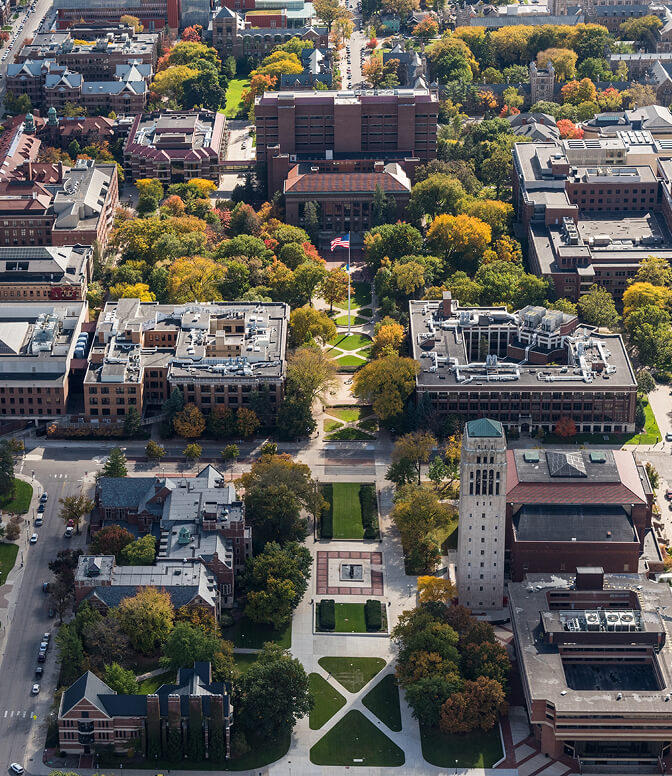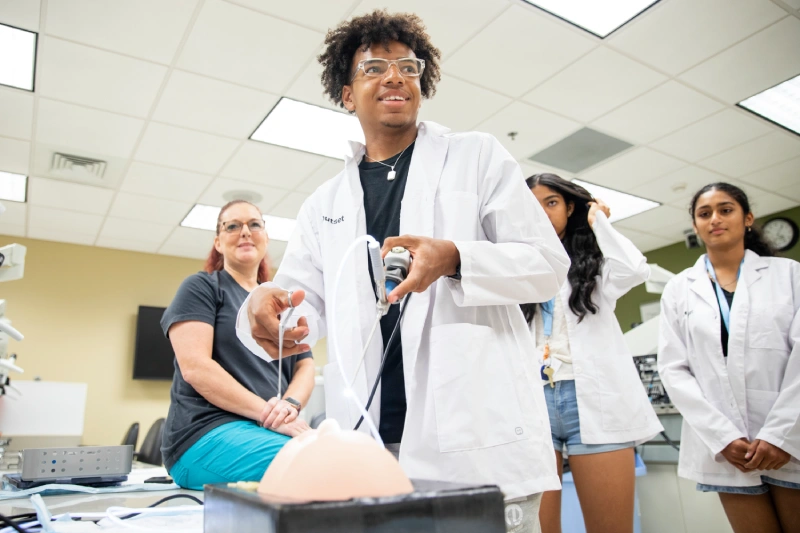Have you ever wondered what it takes to become an anesthesiologist—the medical professional who keeps patients safe and comfortable during surgery? Anesthesiologists play a critical role in making sure patients remain pain-free and stable while surgeons do their work.
If you're thinking about this career, it's important to know that becoming an anesthesiologist isn’t easy. It takes years of education, intensive training, and a strong commitment to patient care. This guide will walk you through the journey, covering what anesthesiologists do, the education and skills you'll need, and how long it takes to enter this vital field.
Ready to explore the path to becoming an anesthesiologist? Let’s dive in!
What Does an Anesthesiologist Do?
Anesthesiologists play a crucial role on the surgical team, taking care of patients before, during, and after surgery. If you become an anesthesiologist, you'll meet with patients before an operation to review their medical history and check their physical condition, creating an anesthesia plan that's just right for them.
During surgery, you'll be the one administering anesthesia—whether it’s putting patients to sleep or numbing a specific area. You'll also closely monitor their vital signs—like heart rate, blood pressure, and breathing—and make adjustments as needed to keep them safe.
After surgery, you’ll continue to care for patients in the recovery room, managing their pain and making sure they stay stable.
But anesthesiology isn’t just about surgery. Some anesthesiologists specialize in pain management, helping people with chronic conditions like back pain or migraines. Others work in critical care units, caring for seriously ill patients alongside other specialists.
This career requires quick decision-making, constant focus, and strong medical knowledge. If you're eager to explore this field, getting hands-on experience—like shadowing doctors or attending a medical summer camp—can be a great first step.
Education and Training Requirements: How to Become an Anesthesiologist
Understanding how to become an anesthesiologist means knowing the education and training path required. Becoming an anesthesiologist takes dedication and time. It starts with a four-year undergraduate degree. While you can major in anything, focusing on pre-med or sciences like biology or chemistry helps. You'll need strong grades in important pre-med courses like biology, chemistry, physics, and math.
After college, you'll tackle the Medical College Admission Test (MCAT), which assesses your knowledge in the sciences, psychology, and sociology. A good score is essential for getting into medical school.
Medical school lasts another four years. The first two years are mostly classroom learning—subjects like anatomy, pharmacology, and physiology. The last two years involve clinical rotations, where you'll gain hands-on experience in different medical fields.
Once you have your MD or DO degree, you'll enter a four-year anesthesiology residency. The first year is a general internship, followed by three years focused on anesthesiology. Here, you'll learn about administering anesthesia, pain management, and critical care.
After residency, you need to pass exams from the American Board of Anesthesiology (ABA) to become board certified. This certification lets you practice independently.
If you decide to specialize further, you can pursue a fellowship in areas like pain management, pediatric anesthesia, or critical care, which takes an extra one to two years.
This path involves years of rigorous study and training, but it prepares you to provide top-level patient care as an anesthesiologist.
How Long Does It Take to Become an Anesthesiologist?
From high school onward, becoming an anesthesiologist takes about 12 to 15 years. Here's the timeline:
First, there's the four-year undergraduate degree. Then, four years of medical school to earn your MD or DO degree. After that, a four-year anesthesiology residency, starting with a general intern year followed by three years focused on anesthesiology.
If you opt for a fellowship in a subspecialty like pain management or pediatric anesthesia, add another one to two years.
There's no way to cut corners in this process. But you can set yourself up for success by focusing on science and math in high school, joining health-related activities, and finding mentors.
All this training prepares you to handle the serious responsibility of caring for patients during surgery.
Skills and Qualities Needed to Become a Successful Anesthesiologist
Anesthesiologists need more than just medical knowledge to excel in their field—they must also develop a range of critical skills. Attention to detail is essential, as even small miscalculations in dosage or lapses in monitoring can have serious consequences.
When unexpected complications arise during surgery, strong problem-solving skills allow them to assess the situation quickly and make necessary adjustments. This ties directly into decision-making, as anesthesiologists must act swiftly and confidently to ensure patient safety.
Clear and effective communication is just as important, as they collaborate closely with surgeons, nurses, and other medical professionals. By mastering these skills, anesthesiologists can navigate the challenges of their profession and provide the highest level of care. High school pre-med students can begin honing these essential skills for pre-med students through summer programs.
The Association of American Medical Colleges (AAMC) highlights essential competencies that aspiring medical students should develop to succeed in medical school and build strong careers as physicians. Their premed competency model offers a clear framework to help students prepare for and excel in medical education.
If you're interested in becoming an anesthesiologist, a great way to start is by exploring the practices and guidelines from the American Society of Anesthesiologists (ASA).
The ASA provides valuable resources, including standards, practice guidelines, advisories, and expert insights that shape the field. Learning about these can give you a deeper understanding of what it takes to excel in anesthesiology and how professionals ensure patient safety and care.
Average Anesthesiologist Salary
Anesthesiologists are among the highest-paid medical professionals. According to the U.S. Bureau of Labor Statistics (BLS), the mean annual wage for anesthesiologists was $339,470 in May 2023. Salaries can vary based on experience, location, and type of facility.
However, Salary.com reports higher figures, with the average annual salary for an anesthesiologist in the United States at $441,100. Pay typically ranges from $382,200 to $500,100, with most professionals earning between $328,575 and $553,816.
Salaries differ by region. For example, anesthesiologists practicing in metropolitan areas or certain states may earn higher wages. Factors such as cost of living and demand for medical professionals can influence earnings.
The job outlook for anesthesiologists is projected at 4% between 2023 and 2033, according to the BLS. This means employment is expected to rise. That is because the need for anesthesiologists will continue due to factors like an aging population requiring medical procedures.
If you're interested in subspecialties, areas like pain management and critical care may offer additional opportunities. Advancements in medical technology and procedures can also expand the roles available to anesthesiologists.
Challenges and Rewards of the Profession
Anesthesiology comes with its share of challenges. You'll work long hours and may be on call for emergencies. The operating room is intense, and you'll need to make quick decisions while staying calm.
But there are significant rewards. Knowing you've helped someone through surgery, easing their pain—it's a powerful feeling. The job also offers a high salary, reflecting the responsibility you carry.
Alternative or Related Careers in Anesthesiology
There are other careers in the medical field related to anesthesiology:
- Nurse Anesthetist (CRNA): CRNAs are advanced practice nurses who administer anesthesia and care for patients before, during, and after surgery. The path to becoming a CRNA requires a nursing degree and takes less time than medical school and residency.
- Pain Management Specialist: These doctors focus on diagnosing and treating chronic pain using various therapies. If you're interested in long-term care and a multidisciplinary approach, this could be for you.
- Critical Care Anesthesiologist: These anesthesiologists work in intensive care units, caring for patients with life-threatening conditions. They blend anesthesia with critical care medicine.
- Emergency Medicine Physician: While they don't focus on anesthesia, emergency doctors need similar skills in acute care and quick decision-making. They handle all kinds of medical emergencies.
Each of these medical career paths involves patient care in critical situations and requires technical skill. Choosing the right one depends on what interests you most—whether it's patient interaction, work environment, or a particular medical focus.
Steps for Teens: How to Become an Anesthesiologist
If you're a teen interested in how to become an anesthesiologist, here's how to get started:
- Focus on Science and Math: Do well in biology, chemistry, and advanced math. These subjects are the building blocks for your future studies.
- Join Health-Related Clubs: Get involved in groups like Health Occupations Students of America (HOSA) or start a medical club at school. These experiences show your interest and help you learn more. They also provide excellent talking points when preparing for pre-med interviews.
- Volunteer or Shadow Professionals: Volunteer at local hospitals or clinics. If you can, shadow an anesthesiologist to see what they do day-to-day.
- Attend Medical Summer Programs: Sign up for medical programs for high schoolers like Outset. These give you hands-on experience and exposure to medical coursework.
- Develop Essential Skills: Work on your skills like communication, critical thinking, and problem-solving skills. They're important in any medical career.
Starting these steps now can prepare you for the education and training ahead in your journey of how to become an anesthesiologist.
Explore an Anesthesiology Career with Outset
Are you curious about the day-to-day life of an anesthesiologist? Outset offers hands-on experiences across healthcare specialties. We have an anesthesiology program in partnership with UNC-Chapel Hill, which has one of America’s top medical schools.
Through Outset, you might even meet Dr. Alice Li, an anesthesiologist who can share insights from her career. If you’re interested, apply now on our website!
Final Thoughts
Becoming an anesthesiologist is a long and challenging journey, but it's also one of the most rewarding. You'll gain the skills to provide critical care during some of the most vulnerable moments in a patient's life. Along the way, you'll develop expertise, confidence, and the ability to make a real difference in healthcare.
If you're serious about pursuing this path, start now by building a strong foundation in science, seeking hands-on experiences, and learning from professionals in the field. Every step you take today will bring you closer to your future career as an anesthesiologist.
Resources & References
American Society of Anesthesiologists (ASA)
American Board of Anesthesiology (ABA)














.png)








